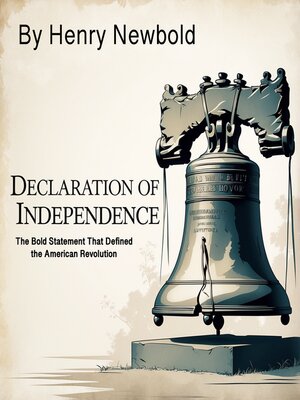Declaration of Independence
audiobook (Unabridged) ∣ The Bold Statement That Defined the American Revolution
By Henry Newbold

Sign up to save your library
With an OverDrive account, you can save your favorite libraries for at-a-glance information about availability. Find out more about OverDrive accounts.
Find this title in Libby, the library reading app by OverDrive.



Search for a digital library with this title
Title found at these libraries:
| Library Name | Distance |
|---|---|
| Loading... |
This audiobook is narrated by a digital voice.
The seeds of American independence were sown long before the first shots were fired at Lexington and Concord. Throughout the 18th century, the American colonies experienced increasing frustration with British rule, primarily due to the imposition of laws and taxes by a distant Parliament in which they had no representation. One of the earliest points of contention was the aftermath of the French and Indian War, which concluded in 1763. Though Britain emerged victorious, it was left with a massive debt. To recover financially, the British government turned to its American colonies, introducing a series of unpopular taxes and regulations that sparked resentment and resistance.
The Stamp Act of 1765 was one of the first direct taxes levied on the colonies, requiring them to use specially stamped paper for legal documents, newspapers, and other printed materials. Colonists saw this as a violation of their rights as Englishmen, who believed that taxation without representation was unjust. This act, among others, led to widespread protests, the formation of groups like the Sons of Liberty, and the organization of boycotts against British goods. These actions marked the beginning of a unified colonial resistance and laid the groundwork for future political collaboration.
As tensions grew, the colonists began to articulate a more organized opposition. The Boston Massacre in 1770 and the Boston Tea Party in 1773 became iconic moments that fueled public outrage and solidified anti-British sentiment. The British response was swift and punitive. The Coercive Acts, known in the colonies as the Intolerable Acts, were meant to bring Massachusetts under control but instead further united the colonies in defiance. This led to the formation of the First Continental Congress in 1774, where representatives from twelve colonies gathered to coordinate a collective response.







